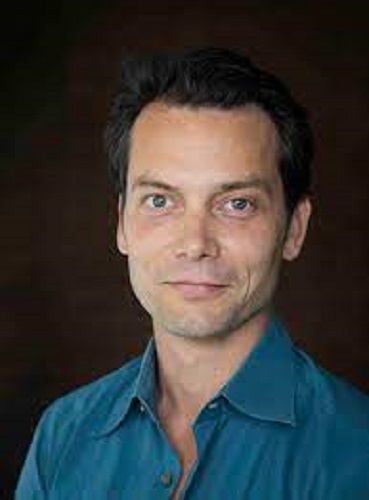De Canadese schrijfster Rachel Cusk werd geboren op 8 februari 1967 in Saskatoon. Zie ook alle tags voor Rachel Cusk op dit blog.
Uit: Coventry: Essays
“Every so often, for offences actual or hypothetical, my mother and father stop speaking to me. There’s a funny phrase for this phenomenon in England: it’s called being sent to Coventry. I don’t know what the origins of the expression are, though I suppose I could easily find out. Coventry suffered badly in the war: it once had a beautiful cathedral that in 1940 was bombed into non-existence. Now it’s an ordinary town in the Midlands, and if it hasn’t made sense of its losses, it has at least survived them.
Sometimes it takes me a while to notice that my parents have sent me to Coventry. It’s not unlike when a central-heating boiler breaks down: there’s no explosion, no dramatic sight or sound, merely a growing feeling of discomfort that comes from the gradual drop in temperature, and that one might be surprisingly slow – depending on one’s instinct for habituation – to attribute to an actual cause. Like coldness the silence advances, making itself known not by presence but by absence, by disturbances of expectation so small that they are registered only half-consciously and instead mount up, so that one only becomes truly aware of it once its progress is complete. It takes patience to send someone to Coventry: it’s not a game for those who require instant satisfaction. If you don’t live with your victim or see them every day, it might be a while before they even notice they’ve been sent there. All the same, there’s no mistaking this for anything less deliberate than punishment. It is the attempt to recover power through withdrawal, rather as the powerless child indignantly imagines his own death as a punishment to others. Then they’ll be sorry! It’s a gamble, with oneself as the stakes. My mother and father seem to believe they are inflicting a terrible loss on me by disappearing from my life. They appear to be wielding power, but I’ve come to understand that their silence is the opposite of power. It is in fact failure, their failure to control the story, their failure to control me. It is a failure so profound that all they have left to throw at it is the value of their own selves, like desperate people taking the last of their possessions to the pawn shop.
But perhaps it isn’t like that at all. I remember girls being sent to Coventry at school, a cold and calculated process of exclusion in which the whole cohort would participate. It was a test of an individual’s capacity for survival, of her psychological strength: if other people pretend you’re not there, how long can you go on believing you exist? This was elemental bullying, the deliberate removal of the relational basis of human reality. The group would watch their victim with interest, as she wandered wordless and unacknowledged through the days. By sending someone to Coventry you are in a sense positing the idea of their annihilation, asking how the world would look without them in it. Perversely, over time, your victim might cultivate exaggerated notions of their own importance, for this troubling fact of their existence seems to have an unusual significance.”

De Amerikaanse dichteres en schrijfster Elizabeth Bishop werd geboren op 8 februari 1911 in Worcester, Massachusetts. Zie ook alle tags voor Elizabeth Bishop op dit blog.
Enorm slecht schilderij
Hij herinnerde zich de zeestraat van Belle Isle
of de een of andere haven aan Labradors noordkust,
voordat hij onderwijzer werd maakte
een oudoom een groot schilderij.
Mijlenver aan beide zijden zich verwijderend
in een gegolfde, stilstaande hemelboog
verrijzen bleekblauwe steil uitstekende rotsen
honderden meters hoog,
hun voet aangevreten door poortjes,
de ingangen tot grotten naar binnen
vallend langs de waterlijn van een baai
door fraaie golven gemaskeerd.
Op het midden van die vredige vloer
rust een vloot van zwarte scheepjes,
vierkant gebrast, met opgerolde zeilen, zonder te bewegen,
hun sparren net afgebrande luciferhoutjes.
En hoog boven hen, over de half doorschijnende
rijen oprijzende rotsen heen nog,
zijn fijntjes gekrabbeld honderden zwarte vogels
in rijen n-tjes gehangen, in slagzij gevangen.
Je kunt ze horen krassen, krassen,
het enige geluid dat telt op het
zo nu en dan weerklinkende zuchten na
wanneer een groot waterdier ademhaalt.
In het rozige licht
rolt de kleine rode zon, rolt,
rond en rond en rond op dezelfde hoogte
in eeuwige ondergang, veelomvattend, vertroostend,
terwijl de schepen daar diep over denken.
Klaarblijkelijk was dit hun destinatie.
Het valt moeilijk te zeggen wat hen daar gebracht heeft,
commercie of contemplatie.
Vertaald door J. Bernlef

De Nederlandse dichter, songwriter en musicus Robin Block werd geboren op 8 februari 1980 in Heemskerk. Zie ook alle tags voor Robin Block op dit blog.
Uit: In Between & Di Antara (Samen met Angelina Enny)
Samudra
A stamp across a name
that I could not spell
but I recognise the sound
and the hand that tucked me in.
The quaver of the gong
lasts longer than the sigh of pale masters.
The century stretches out its curved back
and straightens.
Once again the spirit of my forefathers
rolls over my tongue.
I find myself dozing off in a rattan chair
as I chew on rambutan, tobacco, on the taste
of their prayers.
I nod to echo their silence,
point at the ocean and listen:
sss-aaa-muuu-drrraaa.
Do you see how the sun carries along—in stripes—
and paints a face in the bamboo grids?
Do you see how brightly it colours around
mothers’ cheekbones?
There is a map in my skin,
like a burn mark, for future wanderings.

Zie voor nog meer schrijvers van de 8e februari ook mijn blog van 8 februari 2019 en ook mijn blog van 8 februari 2015.
